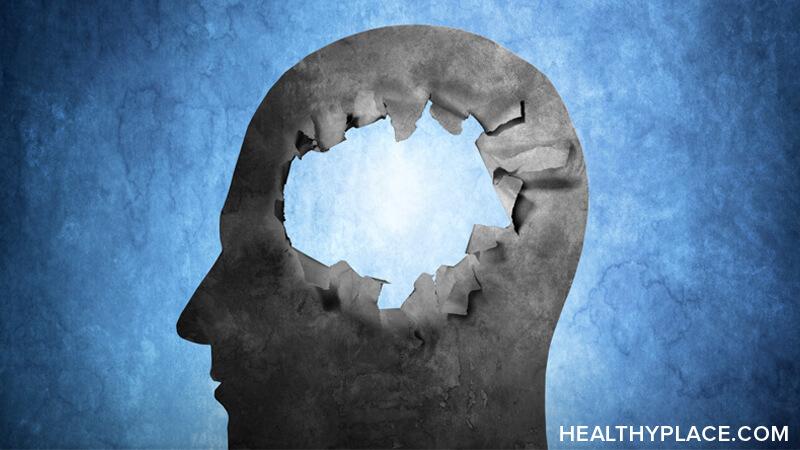My Eating Disorder Relies on Selective Memory

My eating disorder relies on selective memory in order to maintain a stringent foothold in my life. Selective memories are enticing and compelling. They can also be quite dangerous. In fact, as I have come to realize, the presence of selective memory is often the difference between making continual strides in recovery or free-falling back into a cycle of relapse. What do I mean by this, and how am I learning to combat selective memory in my eating disorder? Let me explain.
What Is Selective Memory, and How Does It Manifest?
Before I unpack the reason my eating disorder relies on selective memory, I think it would be helpful to dive into what it means to experience selective memory in the first place. As a writer, I always look for concrete words to spell out whatever mental or emotional sensation I am dealing with in the abstract. So here's a clinical definition of selective memory (also called selective amnesia) from the American Psychological Association:
"The forgetting of particular issues, people, or events that is too extensive to be explained by normal forgetfulness and that is posited to be organized according to emotional, rather than temporal, parameters. The selectivity appears to be of benefit to or convenient for the person who cannot remember."1
For me, the keyword here is "convenient." I choose not to remember certain incidents in my past because they cause too much shame, embarrassment, confusion, anxiety, discomfort, or pain to think about. This is especially true when it comes to my eating disorder. It overwhelms me to reflect on the person I was back when anorexia controlled every single aspect of my life.
In some cases, selective memory can be a defense mechanism to protect against the emotional impacts of trauma. The brain stores traumatic circumstances much differently than normal or routine information. It's often hard to recall events from a trauma in sequential order because the brain will encode intangible sensory elements associated with that trauma rather than the more specific contextual or chronological details.2
For instance, I can only remember one clear fragment of my intake process for residential treatment—the sight of a hailstorm outside the window. I recall absently thinking: "What a poetic metaphor for how I feel right now."
The remainder of that afternoon, however, is still an obscure haze, and given the research on trauma, this doesn't surprise me. Memory gaps are common in situations of extreme or acute stress. But trauma is not the sole cause of selective memory.
Sheer human willpower also has an active role to play.3 The truth is, I force myself into forgetfulness. I hate those visceral flashes of recollection—the fear that suffocated me, the misery that consumed me, the isolation that engulfed me, the loved ones I hurt, the relationships I severed, and the callousness and self-absorption that became my default settings. I am not proud of these harmful, problematic behaviors. I cringe at the memories, so it's easier to repress them.
The Main Reason My Eating Disorder Relies on Selective Memory
I must admit, selective memory keeps me comfortable. It allows me to shove distressing flashbacks into the far corners of my brain. It lulls me into a feeling of security—if I don't have direct access to certain memories, they will no longer haunt me. In theory, this might sound reasonable, but here's the problem: My eating disorder relies on selective memory.
If I choose not to remember the suffering, I'll be tempted to gloss over it with romanticized brushstrokes. I will focus entirely on so-called "positive" memories skewed through the lens of my eating disorder—the euphoria of increasing my pace on the treadmill or the satisfaction of shaving another pound off the scale. I will forget the terrible cost of those temporary highs, which opens the door for unhealthy behaviors to waltz right back in.
Selective memory feels safe in the moment, but it won't do me any favors long-term. The only solution is to remember—to confront the unvarnished, unrepressed reality, no matter how painful. I will discuss how I'm learning to do this in the video below.
*Youtube policy restricts this video due only to its topic of eating disorders.
Does this resonate with you? Do selective memories undermine your commitment to healing or leave you susceptible to an eating disorder relapse? How do you combat those selective memories? Please share your thoughts in the comment section.
See also:
Sources
- APA Dictionary of Psychology. (n.d.-b). American Psychological Association. https://dictionary.apa.org/selective-amnesia
-
Neurobiology of Trauma. (n.d.). Assault Survivors Advocacy Program. https://www.unco.edu/assault-survivors-advocacy-program/learn_more/neurobiology_of_trauma.aspx
-
An Overview Of Selective Memory. (2023, February 28). BetterHelp. https://www.betterhelp.com/advice/memory/an-overview-of-selective-memory/
APA Reference
Schurrer, M.
(2023, May 31). My Eating Disorder Relies on Selective Memory, HealthyPlace. Retrieved
on 2026, March 5 from https://www.healthyplace.com/blogs/survivinged/2023/5/my-eating-disorder-relies-on-selective-memory